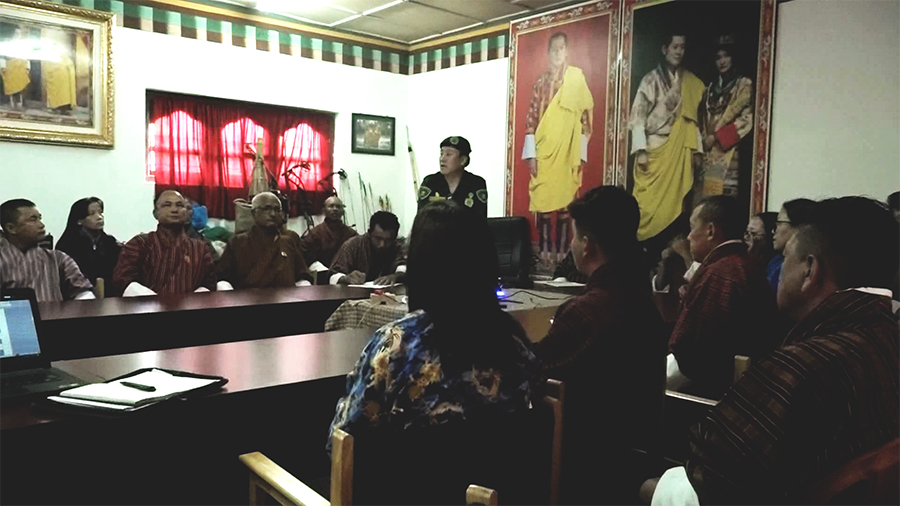
Finally, some good news for farmers in Gelephu struggling to co-exist with wildlife, elephants to be specific. The Department of Forests and Park Services and the United Nations Development Programme are working to initiate an insurance scheme for crops and livestock damaged by wildlife. In the pilot phase, they plan to start the scheme in six gewogs of three districts including Sarpang. The other two districts are Tsirang and Zhemgang.
Gelephu and Samtenling are the two gewogs in Sarpang identified for the pilot insurance scheme project.
UNDP officials in collaboration with the Department of Forest and Park Services conducted a day-long consultation meeting with local leaders of the two gewogs to understand the ground issue. Based on the feedback from the local leaders, they will develop a viable insurance scheme along with SOP for implementation.
During the consultation meeting, officials took note of how much each farmer spends on cultivation, the income they earn from selling the harvest, and the quantity of crops they lose to wild animals.
According to the farmers, each of them spends around Nu 50,000 to cultivate paddy on an acre of land. They harvest a minimum of 100 sacks of rice, each weighing 50 kg, from one-acre land.
However, they claim sometimes wild elephants damage almost all their crops overnight. They say implementation of the human-wildlife insurance scheme would not only help them recover the financial loss but also help revive agriculture farming.
Gelephu Mangmi, Sonam Drakpa said, “The scheme might encourage farmers to revive farming. People claim that years of hard work become useless when elephants damage the crops and they can’t even get any compensation. Farmers are hopeful that crop insurance policy would help revive agriculture and farming.”
“Farmers sustain their livelihood through agriculture and rearing livestock. Wild animals rampage areca nuts, orange trees, maize, and, fruit trees. The insurance scheme would be of immense benefit to the farmers,” added Dechenpelri Tshogpa, Karma Tenzin.
Samtenthang Tshogpa, Tshewang Pelden said, “if we advocate people on the insurance scheme for human-wildlife conflict, farmers would take interest in agriculture farming. Till now, our crops are being stormed by wild boar and elephants without any compensation for damaged crops.”
The Department of Forests and Park Services and UNDP Bhutan initiated the project to conserve biodiversity while reducing the financial loss for the farmers resulting from crop damage caused by wildlife.
It is also to allow farmers to coexist peacefully with wildlife.
They expect to commence the pilot scheme for the three districts from next year. If the pilot project becomes a success, they are going to roll out nationwide. Human-wildlife conflict is a recurring problem in various parts of the country forcing most farmers to leave their land fallow in some cases.
Karma Wangdi, Gelephu
Edited by Phub Gyem










